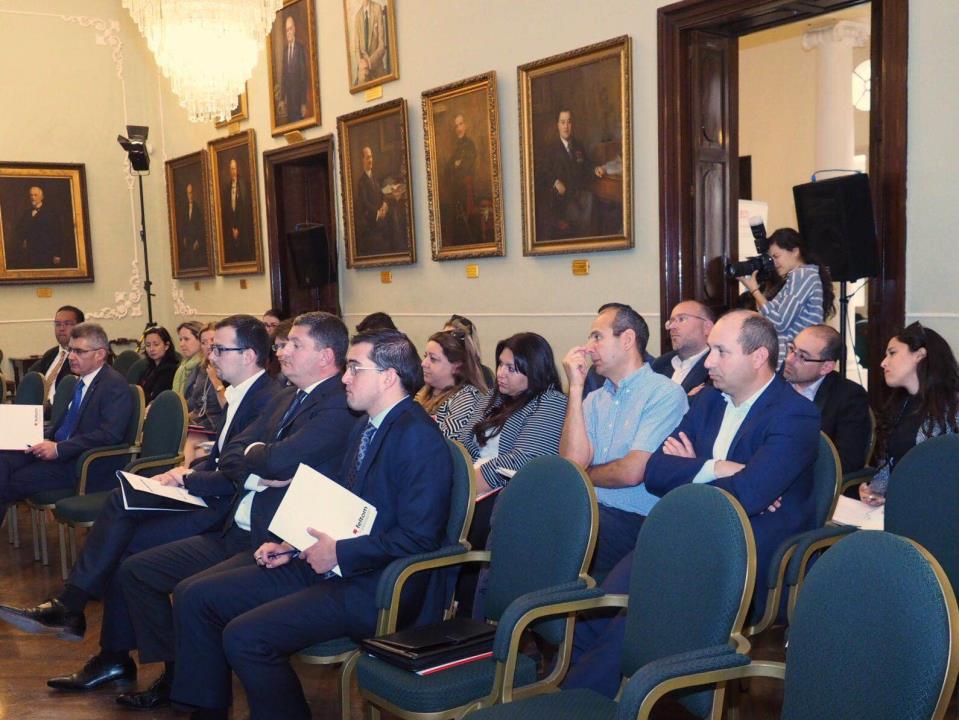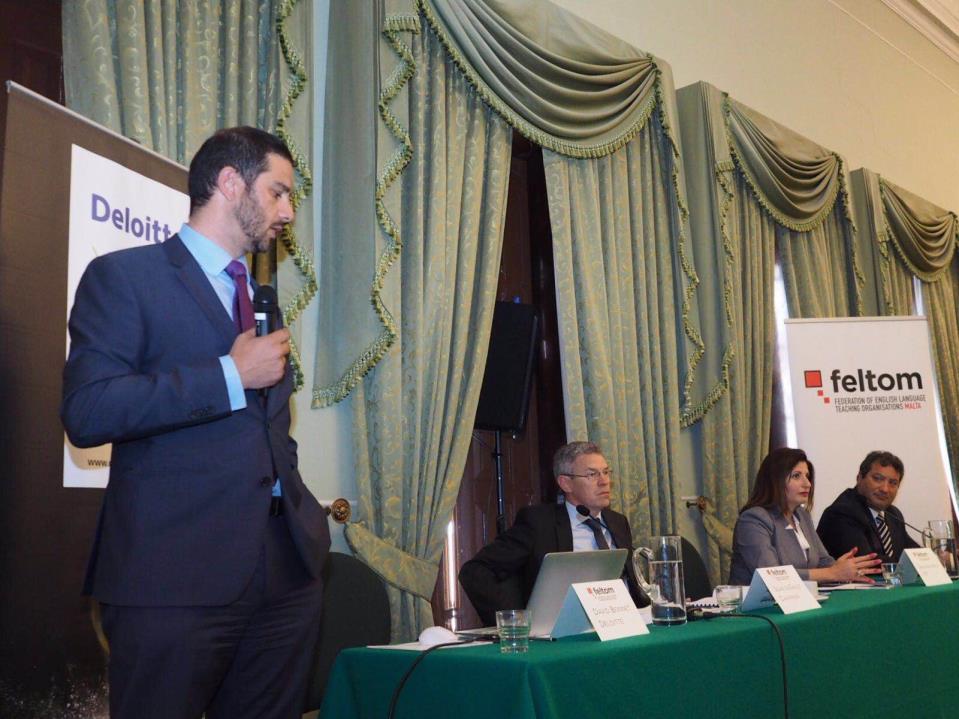The Federation of English Language Teaching Organisations of Malta (FELTOM) has called for more favourable VAT exceptions, believing that this will make Malta more competitive when compared with other English Language Teaching (ELT) destinations.
“More favourable VAT exemptions as exist in other destinations on tuition and services as well as simplified and more efficient procedures when it comes to issuing of visas can give the sector a much needed competitive boost,” Genevive Abela, CEO of FELTOM said this morning.
While addressing various stakeholders and the press at the ‘2015 FELTOM ELT Industry Survey Report by Deloitte,’ Ms Abela stressed that English language students in Malta represented roughly 9.8% of the total tourist expenditure – a significant portion which cannot be ignored.

The annual report, based on thorough research amongst FELTOM’s 20 member schools is considered as an excellent tool that not only gives a clear picture of the sector’s situation, but also serves as an indicator of what is effective and what needs to be improved.
“The Malta Chamber of Commerce, Enterprise and Industry and FELTOM share the same mission to see the industry,” President of the Chamber of Commerce Anton Borg said.
“FELTOM is in the best position to foresee future problems, due to the extensive research it carries out. The Chamber endorses FELTOM’s bold call to make VAT more competitive and reduce bureaucracy with regard to visas,” he added.
He made reference to a government initiative which sought to fast-track student visas, adding that it is important for the authorities not to remove this due to cases of abuse.
Ms Abela stressed that a lack of consultation with FELTOM is completely unacceptable, especially in view of the significant contribution by English language learners towards Malta’s economy. A member of the audience also pointed towards the multiplier effect of such students – their disposable income is not just spent at language schools and accommodation, but an array of local businesses benefit from them.
“FELTOM is not being backed by the authorities in this regard – which is evident from the lack of consultation. With the exception of the Malta Tourism Authority, there needs to be more collaboration,” she added.

Deloitte report
David Bonnet, a Deloitte representative who carried out the survey, gave a breakdown of earnings, costs and contributions as a result of English language students in Malta.
He showed how there has been no major shifts in European markets – that is European students visiting Malta to learn English. The largest European market, which is Italy, saw a reduction of 2,123 student weeks when comparing 2014 with 2015.
On the other hand, there has been extensive movement with regard to non-European markets – with the highest jump of student arrivals coming from Colombian and South Korean Markets. As expected, there has been a significant decrease in Russian and Libyan student weeks, which is most likely attributed to the instability in both regions.
Contrary to the common perception that most English language students coming to Malta are under 18 and therefore tend to cause a ruckus when visiting the island’s nightlife and entertainment establishments, it was found that only 27% of student weeks are spent by minor students.
One representative from an ELT school made reference to difficulties being found in finding accommodation for groups in hotels. He said that many hotels simply refuse when they realise a school is inquiring about a group of students, and added that the €0.50c eco-contribution tax is also creating difficulties.